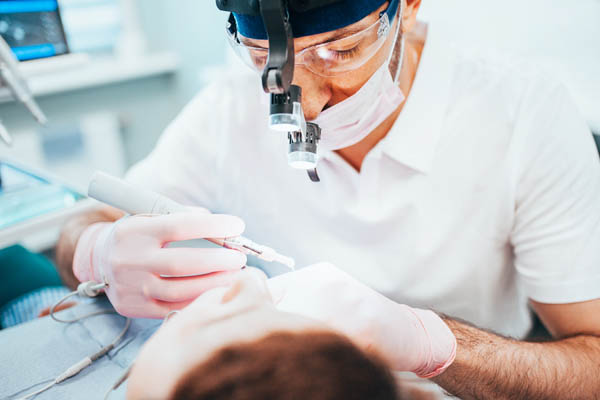3 Signs You Need Root Canal Treatment

Root canal treatment is typically recommended as a last resort to save a severely damaged, infected, or decayed tooth. It is often a necessity when a tooth has a damaged pulp. The pulp refers to the soft tissues inside a tooth, which are stored in the pulp chamber, the innermost layer of a tooth.
When a tooth is healthy, the pulp chamber is sealed off from the rest of the tooth, protecting its contents from irritants in the mouth like bacteria and the acids that they make. However, dental issues like tooth decay or severe damage caused by trauma can open a tooth’s pulp chamber. When that occurs, the soft tissues are exposed to bacteria in the mouth, significantly increasing the risk of infection.
Signs that you need root canal treatments
Root canals are only recommended when a dentist deems them necessary to save a tooth. Signs that indicate that this might be the case include the following.
1. Severe toothaches
A damaged pulp chamber often leads to excruciating toothaches, which are nothing like the toothaches caused by minor damage to teeth. The toothaches can be so intense that they make it impossible for the patient to get any sleep at night or to focus on activities during the day. The pain caused by a tooth with a compromised pulp is often enough to even force people with dental phobias to seek dental care.
Root canal treatment is an effective way to end the pain while saving the patient’s tooth. The procedure can be completed during a single visit, so the patient typically leaves the clinic with their tooth pain gone.
2. Severe decay
Tooth decay is one of the most common reasons that people visit a dentist. It is caused by the acids made by bacteria eating away at teeth structures. The early stages of tooth decay can easily be treated with fluoride treatments and fillings, but not everyone gets the issue addressed on time.
When left untreated, tooth decay will continuously expand until it reaches the pulp chamber. At that point, the patient might experience intense toothaches, and the risk of infections drastically rises. Root canal therapy can be used to clean out the pulp chamber of a severely damaged tooth, which is then resealed with gutta-percha.
3. Infected tooth
An infected tooth needs root canal therapy to address the infection and save it. A tooth becomes infected when bacteria get into the pulp chamber. Symptoms include intense toothaches, pus pockets building up around the tooth, or a strange smell in the mouth.
Root canal therapy involves the dentist removing a tooth’s soft tissues and applying medication to the pulp chamber to treat the infection. The tooth is then sealed back up and covered with a crown or rebuilt with composite bonding.
We can save your tooth
Are you dealing with a damaged, decayed, or infected tooth? Our dentist can help. Call or visit our Canon City clinic to set up an appointment.
Request an appointment here: http://www.jaredsmithdmd.com or call Jared M. Smith DMD at (719) 298-4214 for an appointment in our Canon City office.
Check out what others are saying about our dental services on Yelp: Root Canal Treatment in Canon City, CO.
Related Posts
Severe tooth decay or damage is often treatable through root canal therapy. Despite its reputation, undergoing a root canal is similar to filling a cavity and is generally no more uncomfortable. Learning about the procedure and the recovery process can help alleviate concerns, helping patients see the benefits of preserving their smile with a root…
Looking for information on common root canal symptoms? There are many symptoms that may appear when someone is in need of root canal therapy. When it is determined that someone needs to undergo a root canal to save a tooth, a general dentist can typically perform the procedure.Understanding symptoms associated with the need for a…
Preventive dentistry goes beyond undergoing dental checkups and cleanings twice a year. Read on to learn how preventive dentistry can protect against various oral health issues. You ensure a lifetime of good oral health and ultimately your general health if you keep those regular checkups. Preventive dental care checkups help you stay proactive in many…
Some people may not realize how improper oral care can have a negative impact on their overall health. Untreated tooth decay does not heal without treatment and usually worsens over time. When those with multiple cavities ignore their dental needs, they may be putting themselves at risk for a variety of other medical problems, some…
